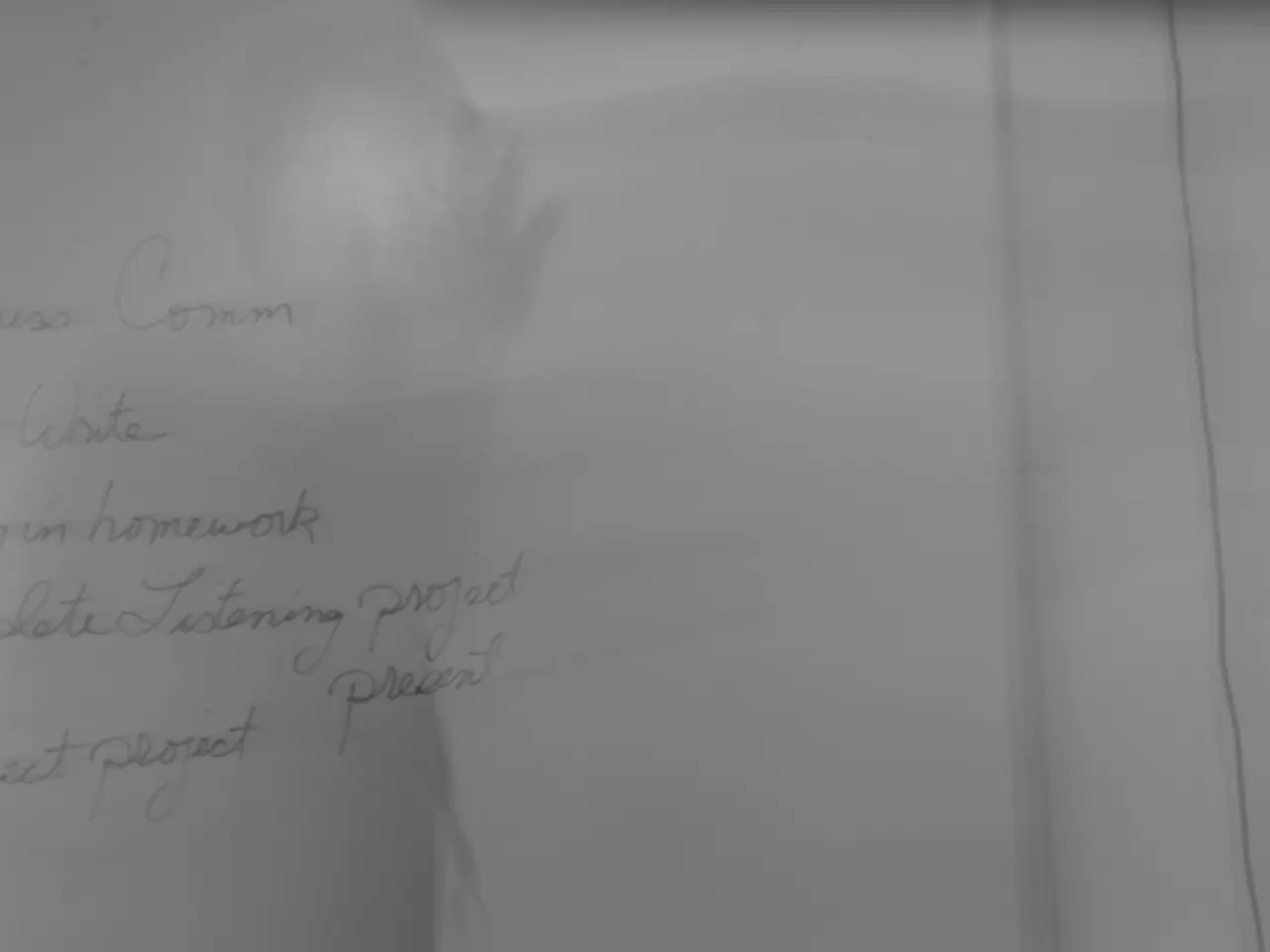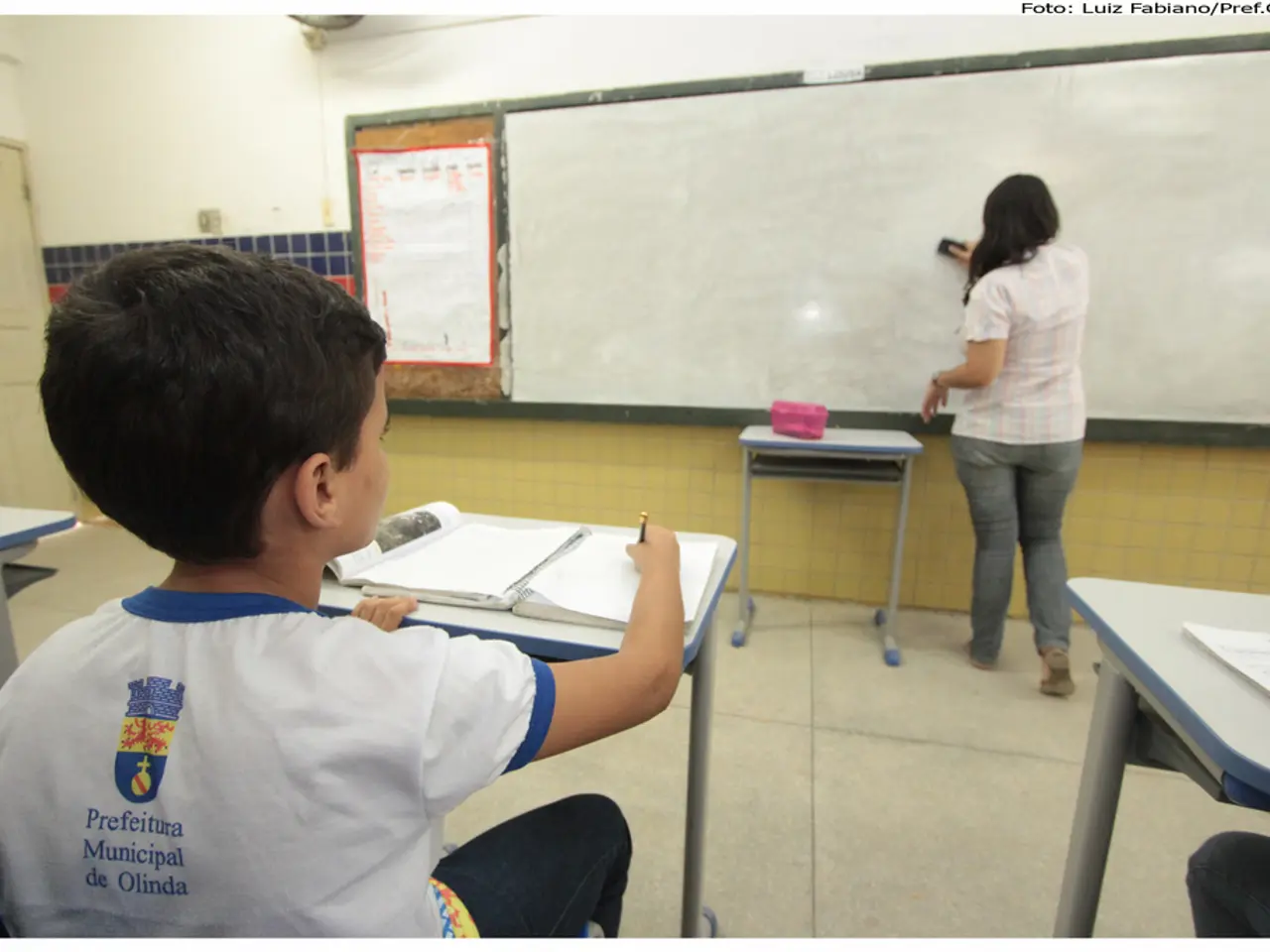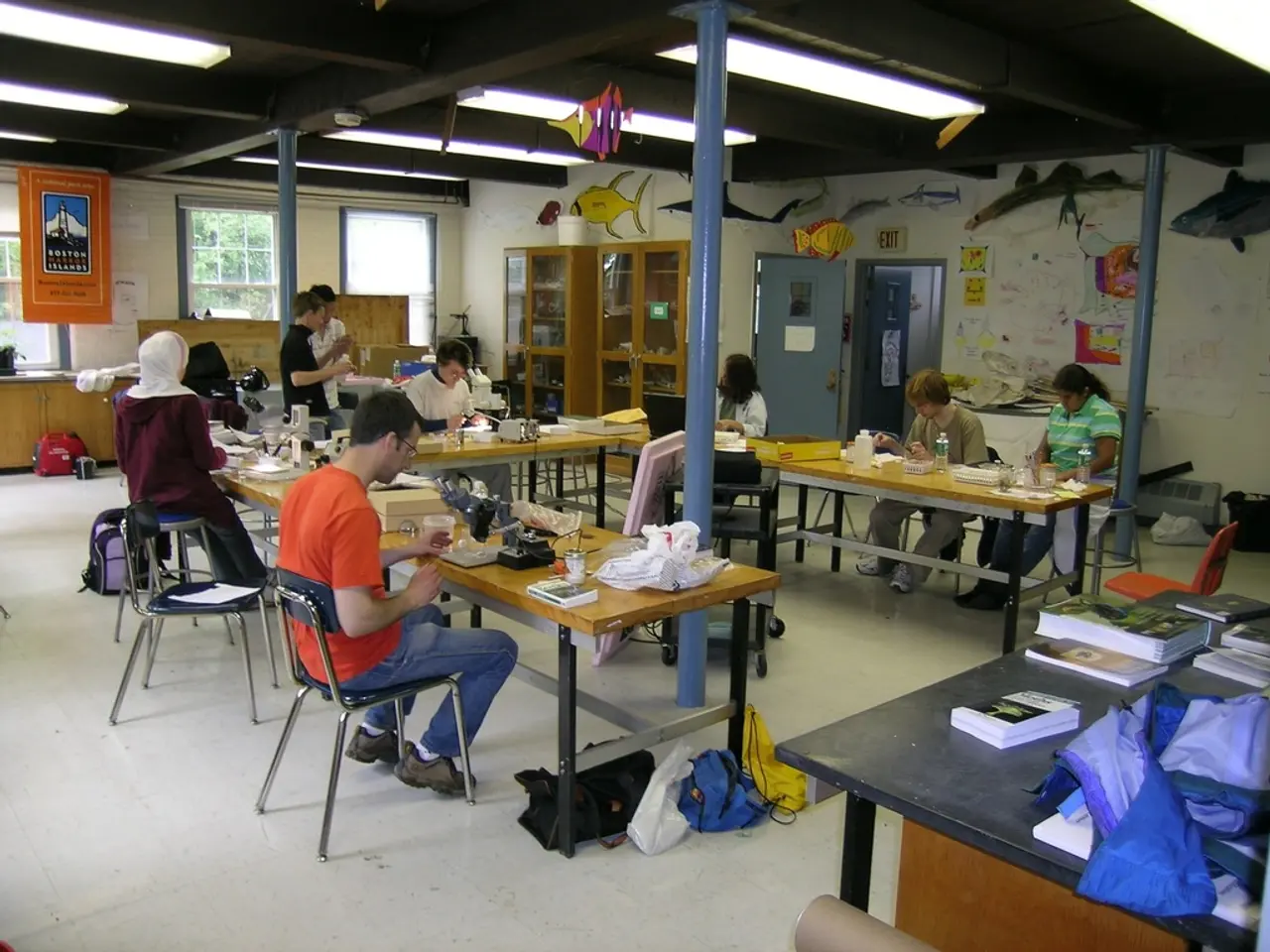No traces of plagiarism discovered in Brosius-Gersdorf's work, according to the findings of the report.
In a recent turn of events, the political landscape in Germany has been shaken by allegations of plagiarism against a constitutional law expert, Frauke Brosius-Gersdorf, who is a candidate for the Federal Constitutional Court. The accusations, initially made on social media by an Austrian "plagiarism hunter" named Stefan Weber, have led to a standoff between the Christian Democrats (CDU/CSU) and the Social Democrats (SPD), causing a dilemma over the election of judges.
The controversy has resulted in the postponement of the vote for Brosius-Gersdorf's appointment, with CDU MP Saskia Ludwig blaming SPD faction leader Matthias Miersch for the situation, stating he should have withdrawn her candidacy[1][4]. However, the SPD and the Greens argue that Brosius-Gersdorf is being unfairly treated, as the allegations are unproven[1][3].
The allegations have also highlighted broader political tensions, particularly over her views on abortion and vaccination policies[3]. Brosius-Gersdorf has since spoken about the situation, reflecting on the emotional impact and the political implications of the allegations[2].
A preliminary assessment by a Stuttgart law firm found no room for plagiarism allegations against Brosius-Gersdorf or her husband Hubertus[1][5]. The law firm considered similarities in footnotes, headings, and text passages and concluded that they neither justify a plagiarism allegation nor do they call into question the scientific nature of the works[1][6].
Despite this, some members of parliament had received many emails warning against the selection of Brosius-Gersdorf before the planned vote[1][7]. CDU MP Gitta Connemann stated that the decision about her election should be made in conversations between the coalition factions of the SPD, CDU, and CSU, not in talk shows or the media[1][8].
The Bishop of Bamberg, Herwig Gössl, offered a personal conversation to Brosius-Gersdorf to clear up any misunderstandings about a sermon she criticized[1][9]. Brosius-Gersdorf found it disturbing that Gössl spoke of an "abyss of intolerance and contempt for people" in relation to her person, in a sermon about the protection of unborn life[1][9].
As of now, the election of two new female judges and one male judge for Karlsruhe remains postponed from the agenda of the Bundestag[1]. The Stuttgart law firm will conduct a comprehensive legal evaluation if necessary[1][6].
Frauke Brosius-Gersdorf, the cleared lawyer, expressed concern about the potential consequences of such campaigns on the country and democracy[4]. She submitted her dissertation at the University of Hamburg in 1997, and her husband Hubertus' habilitation was completed and submitted in the summer semester of 1998 at the same university[10].
The situation has sparked a debate about the handling of such allegations in the political sphere and the impact they can have on individuals and the democratic process. The outcome remains uncertain, with the parties involved facing the challenge of resolving the election of judges while maintaining the integrity of the process.
- The controversy surrounding Brosius-Gersdorf's allegations of plagiarism has extended beyond general-news, as it has also impacted the politics and crime-and-justice sectors, particularly in the election of judges for the Federal Constitutional Court.
- In the midst of the ongoing debate about the handling of plagiarism allegations in politics, the impact on individuals, such as Frauke Brosius-Gersdorf, and the democratic process has raised concerns about the potential influence of social media on general-news and the judicial selection process.








